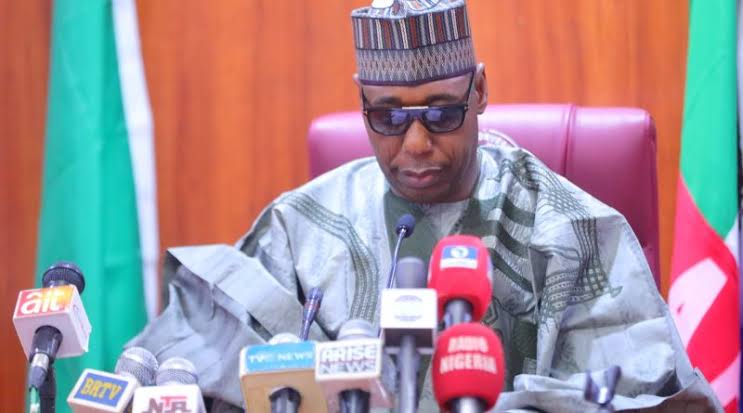The Borno State Government has decided to scale down this year’s Independence Day celebrations in light of the recent devastating flood disaster that affected Maiduguri Metropolis and surrounding Local Government Areas (LGAs).
The announcement was made by the State Commissioner for Information and Internal Security, Prof. Usman Tar, on Monday, who highlighted the need for collective reflection and solidarity during these challenging times.
Prof. Tar explained that the decision aims to support those affected by the flood disaster and focus on addressing the challenges faced by the state. The floods, which struck earlier in September, caused widespread destruction, displacing hundreds of families and damaging vital infrastructure, including hospitals, schools, roads, and bridges.
Governor Babagana Zulum, in a statement relayed by Prof. Tar, expressed deep sympathy for the flood victims and urged the people of Borno to unite in prayer during the Independence Day observance.
“While celebrating our nation’s Independence Day, we must focus on supporting and standing in solidarity with those affected by the September 10 flood disaster. Let us take this time to pray for recovery and strength, not only for Borno State but for all of Nigeria,” Gov. Zulum stated.
He also reiterated the state government’s commitment to redirecting resources towards rebuilding damaged infrastructure and providing essential relief to affected families. Efforts are currently being coordinated with the flood relief disbursement committee to ensure efficient and timely distribution of aid.
According to the United Nations Office for the Coordination of Humanitarian Affairs (OCHA), the flooding on Sept. 10 affected approximately 40% of Maiduguri due to a breach in the nearby Alau Dam, resulting in the deaths of 37 people, injuries to 58, and the displacement of nearly 400,000 people within a week.
The government has taken steps to address the crisis, including closing some of the 30 internally displaced persons (IDP) camps to facilitate the reopening of schools in late September. Currently, 16 camps remain open, and authorities are distributing food supplies to those leaving the closed camps.
Displaced persons whose homes are uninhabitable have been encouraged to seek shelter in host communities or one of the camps that will remain open the longest, such as Bakassi, Teacher’s Village, and Gubio.


